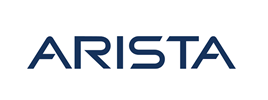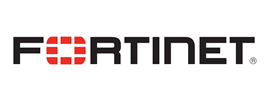- Course overview
- Course details
- Prerequisites
Course overview
About this course
Develop the skills necessary to configure a secure deployment solution for cloud-native apps. Learn how to build, deploy, scale, and manage containerized cloud-native apps using Azure Container Apps, Azure Container Registry, and Azure Pipelines.
Audience profile
The primary audience for this course is
- DevOps Engineer
- Azure Container Registry
- Azure Pipelines
- Azure Container Apps
Course details
Module 1: Get started with cloud native apps and containerized deployments
- Examine the concept of cloud-native applications.
- Explore the benefits and challenges of containerized deployments.
- Explore different deployment options and strategies for cloud-native applications.
- Examine best practices for managing and scaling containerized deployments in Azure.
Module 2: Configure Azure Container Registry for container app deployments
- Examine Azure Container Registry and its role in container app deployments.
- Learn how to create and configure an Azure Container Registry.
- Examine the process of pushing container images to Azure Container Registry.
- Explore different authentication methods and security features for Azure Container Registry
Module 3: Configure a container app in Azure Container Apps
- Examine the features and capabilities of Azure Container Apps.
- Learn how to create and configure an Azure Container App and Container Apps Environment using the Azure portal.
- Examine how to define and manage environment variables for Azure Container Apps.
- Learn how to configure ingress options for Azure Container Apps.
- Explore the process of scaling and managing instances of Azure Container Apps.
- Understand the security considerations and best practices for configuring Azure Container Apps
Module 4: Configure continuous deployment for container apps
- Examine deployment options and strategies for containerized applications.
- Examine the features and capabilities of Azure DevOps and Azure Pipelines.
- Learn how to set up automated build and deployment pipelines for container apps using Azure DevOps.
- Examine how to configure agent pools and secret variables for pipelines.
Module 5: Scale and manage deployed container apps
- Examine the concept of revisions in Azure Container Apps.
- Examine the options for application lifecycle management in Azure Container Apps.
- Learn about the scaling options available for Azure Container Apps.
- Learn about the ingress settings and traffic-splitting for Azure Container Apps.
Module 6: Guided project - Deploy and manage a container app using Azure Container Apps
- Configure Azure Container Registry, Azure Container Apps, and other resources required for an app deployment scenario.
- Configure Azure Pipelines for a continuous integration scenario.
- Configure Azure Container Apps for scaling and revision management.
Prerequisites
- Basic understanding of cloud computing concepts: Familiarity with cloud computing fundamentals, such as virtualization, scalability, and on-demand resource provisioning.
- Knowledge of containers: Understanding the concept of containers, their benefits, and how they differ from traditional apps and virtual machines.
- Familiarity with container orchestration: Basic understanding of container orchestration platforms like Kubernetes and their role in managing containerized applications.
- Experience with Azure: Some familiarity with Microsoft Azure and its core container services, such as Azure Container Registry, Azure Kubernetes Service, and Azure Container Apps.
- Experience with deployments: Some familiarity with Azure DevOps or similar CI/CD tools for application deployment.
- Experience with networks: Some familiarity with networking concepts and Azure Virtual Networks
Enquiry
Course : AZ-2003: Deploy cloud-native apps using Azure Container Apps
Enquiry
request for : AZ-2003: Deploy cloud-native apps using Azure Container Apps





















